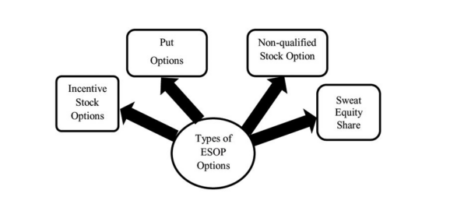Table of Contents
- 1 What is Entrepreneurial Behavior?
- 2 Definition of Entrepreneurial Behavior
-
3 Features of Entrepreneurial Behavior
- 3.1 Behavioral Approach to Management
- 3.2 Cause and Effect Relationship
- 3.3 Branch of Social Sciences
- 3.4 Three Levels of Analysis
- 3.5 A Science as Well as an Art
- 3.6 A Body of Theory, Research, and Application
- 3.7 Beneficial to Both Enterprises and Individuals
- 3.8 Rational Thinking
- 3.9 Human Part of Enterprise
- 3.10 Change Oriented
- 4 Models of Entrepreneurial Behavior
- 5 Importance of Entrepreneurial Behavior
- 6 Difference Between Entrepreneur and Intrapreneur
- 7 FAQs Section About Entrepreneurial Behavior
What is Entrepreneurial Behavior?
Entrepreneurial behaviour is directly concerned with the understanding prediction and control of human behaviour in enterprise. It is an area of study that investigates the impact that individuals, groups, and structures have on behavior within the enterprise.
Definition of Entrepreneurial Behavior
These are the definitions of entrepreneurial behavior given by the authors:
Entrepreneurial behavior is a subset of entrepreneurial activities concerned with understanding, predicting and influencing individual behaviour the in entrepreneurial settings
According to Callahan
He has opined that entrepreneurial behavior, “Is a branch of the social sciences that seeks to build theories that can be applied to predicting, understanding and controlling behaviour in work enterprise
J. Alday
Entrepreneurial behavior is an academic discipline concerned with understanding and describing human behaviour in an entrepreneurial environment. It seeks to shed light on the whole complex human factor in enterprises by identifying causes and effects of that behaviour.
Keith Devis
Entrepreneurial behavior is a field of study that investigates the impact that individuals , groups and structure have on behaviour within enterprises for the purpose of applying such knowledge towards improving an enterprises effectiveness.
Stephen P. Robbins
Features of Entrepreneurial Behavior
The features of entrepreneurial behavior are as follows:
- Behavioral Approach to Management
- Cause and Effect Relationship
- Branch of Social Sciences
- Three Levels of Analysis
- A Science as Well as an Art
- A Body of Theory, Research, and Application
- Beneficial to Both Enterprises and Individuals
- Rational Thinking
- Human Part of Enterprise
- Change Oriented
Behavioral Approach to Management
Entrepreneurial behavior represents the behavioral approach of management. It emerged as a distinct field of study because of the importance of human behavior in enterprise.
Cause and Effect Relationship
Human behavior is generally taken in terms of cause-and-effect relationships. It provides generalizations that entrepreneurs can use to anticipate the effect of certain activities on human behavior.
Entrepreneurial behavior is greatly influenced by other social sciences viz. psychology, sociology, and anthropology. It draws a rich array of research from these disciplines.
Three Levels of Analysis
Entrepreneurial behavior is the study of three levels of analysis i.e., individual behavior, inter-individual behavior, and the behavior of organizations.
A Science as Well as an Art
Entrepreneurial behavior is a science as well as an art. Systematic knowledge about human behavior is a science and the application of behavioral knowledge and skills is an art. Entrepreneurial behavior is not an exact science because it cannot exactly predict the behavior of people in it.
A Body of Theory, Research, and Application
Entrepreneurial behavior consists of a body of theory, research, and application that helps in understanding human behavior in an organization. All these techniques help the entrepreneur to solve human problems in the organization.
Beneficial to Both Enterprises and Individuals
Entrepreneurial behavior is useful and beneficial to both enterprises and individuals. A reasonable climate is created so that employees may get much-needed satisfaction and the entrepreneur may attain its objectives.
Rational Thinking
Entrepreneurial behavior provides rational thinking about people and their behavior. The major aim of Entrepreneurial behavior is to explain and predict human behavior in enterprise.
Human Part of Enterprise
Entrepreneurial behavior is directly related to the human side of enterprise. It focuses on people, their desires, and their needs. It is the systematic study of the actions and attitudes of people working in an enterprise.
Change Oriented
Entrepreneurial behavior is a change-oriented process. It points to the need for change in human behavior with change in technology and other fields of environment.
Models of Entrepreneurial Behavior
The following are the models of entrepreneurial behavior:
Autocratic Model
The basis of this model is the power of the boss. Maxweber defined power as, “The probability that one actor, within a social relationship, will be in a position to carry out his own will despite resistance”.
Walternord defined power as, “the ability to influence flow of available energy and resources towards certain goals as opposed to other goals. Power is assumed to be exercised only when these goals are at least partially in conflict with each other”.
Custodial Model
This model overcomes the shortcomings of the autocratic model. The insecurity and frustration felt by the workers under the autocratic model sometimes led to aggression and frustration.
There was a need to develop a model which would improve the employer-employee relations. The custodial model was used by the progressive entrepreneurs.
Supportive Model
The supportive model originated from the principles of supportive relationships. According to Rensis Likert, “The leadership must be such as to ensure a maximum probability that in all interactions and all relationships with the organization, each member will, in the light of his background, values, and expectations, view the experience as supportive, and one which builds and maintains his sense of personal worth and importance”.
Collegial Model
The collegial model is an extension of the supportive model. The dictionary meaning of the collegial is a body of persons having a common purpose. This model is based on the partnership between employees and the entrepreneur.
Other Models
Some models of organizational behavior can be classified by a number of approaches. A few of these models are as explained below:
-
Normative Model: The normative models seek to find out what should be done to produce optimum results. These models are connected with the determinations of optimum actions.
- Empirical Model: The empirical model describes the activities that the employees actually perform. This model becomes an integral part of entrepreneurial behavior because entrepreneurial behavior is concerned with what is actually taking place in the organization and how people actually behave.
Importance of Entrepreneurial Behavior
The importance of entrepreneurial behavior is as under:
- Understanding Human Behavior
- Predicting Human Behavior
- Control and Direct Behavior
- Entrepreneurial Effectiveness
- Motivation
- Better Human Relations
Understanding Human Behavior
The main function of an enterprise is to understand the human behavior. Entrepreneurial behavior plays an important role in developing full knowledge about the behavior of employees. An entrepreneur needs information about human behavior for the achievement of entrepreneurial goals and for day-to-day functioning.
Predicting Human Behavior
Entrepreneurial behavior also helps in predicting future employee behavior. Entrepreneurs would be able to predict which employees might be dedicated or which might be disruptive. This would allow them to take preventive actions.
Control and Direct Behavior
Entrepreneurial behavior assists entrepreneurs in directing and controlling human behavior to build successful enterprises. An entrepreneur needs to be able to improve results through the controlled activities of the employees.
Entrepreneurial Effectiveness
It can be ensured through entrepreneurial behavior. It helps in better use of raw materials and other resources to improve the quality of work in the enterprise.
Motivation
An entrepreneur has to get things done through employees. Entrepreneurial behavior helps entrepreneurs identify the needs and requirements of the employees and other processes of the organization.
Better Human Relations
Entrepreneurial behavior also helps in maintaining cordial human relations in the enterprise. It assists in finding the causes of industrial conflicts.
Difference Between Entrepreneur and Intrapreneur
The following are the points of difference between entrepreneur and intrapreneur:
| S.NO. | Entrepreneur | Intrapreneur |
| 1. | Entrepreneur is independent | Intrapreneur is semi-independent. |
| 2. | Entrepreneur raises their fund on his own initiative. | Intrapreneur depends upon the industry in which he works for getting the finance. |
| 3. | Entrepreneur takes the profit of the business. | Intrapreneur does not take profit out of innovations but they can be provided with a variety of prerequisite for their innovation. |
| 4. | Entrepreneur bears the full risk of his business. | Intrepreneur bear the risk of the business which is a small part of the entire business. |
| 5. | An entrepreneur is the real owner of the business. | Intrapreneur is not the real owner of the business, rather he works for the business. |
| 6. | An entrepreneur operates from outside an organization. | Intrapreneur operates from within the organization. |
| 7. | Entrepreneur converts the ideas of Intrapreneurs into viable opportunities. | Intrapreneur takes the responsibility of creating innovation of any kind from within the organization. |
FAQs Section About Entrepreneurial Behavior
What is the meaning of entrepreneurial behavior?
Entrepreneurial behavior is a subset of entrepreneurial activities concerned with understanding, predicting, and influencing individual behavior in entrepreneurial settings. According to Callahan
What are the features of entrepreneurial behavior?
Behavioral Approach to Management 2. Cause and Effect Relationship 3. Branch of Social Sciences 4. Three Levels of Analysis 5. Science as well as Art 6. Rational Thinking 7. Human Part of Enterprise 8. Change Oriented are the features of entrepreneurial behavior.
What are the models of entrepreneurial behavior?
These are four main models of entrepreneurial behavior:
1. Autocratic Model
2. Custodial Model
3. Supportive Model
4. Collegial Model and Other Models.
What is the importance of entrepreneurial behavior?
The importance of entrepreneurial behavior is:
1. Understanding Human Behavior
2. Predicting Human Behavior
3. Control and Direct Behavior
4. Entrepreneurial Effectiveness
5. Motivation
6. Better Human Relations.




